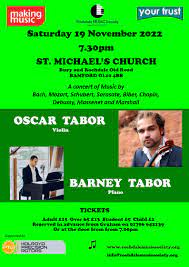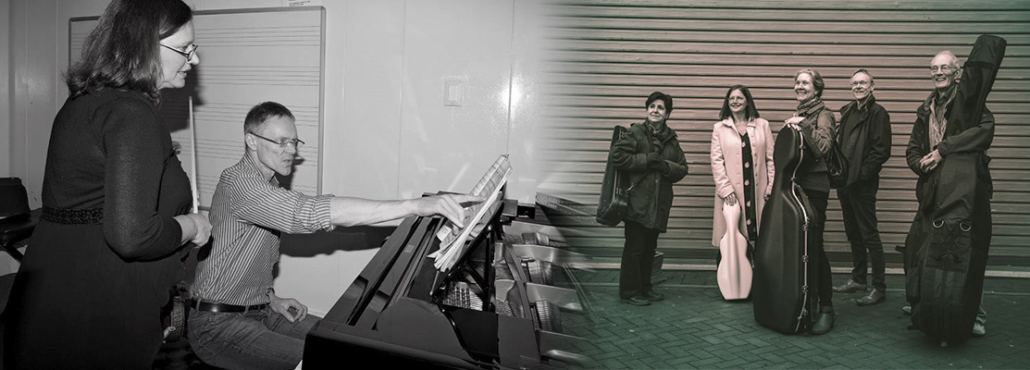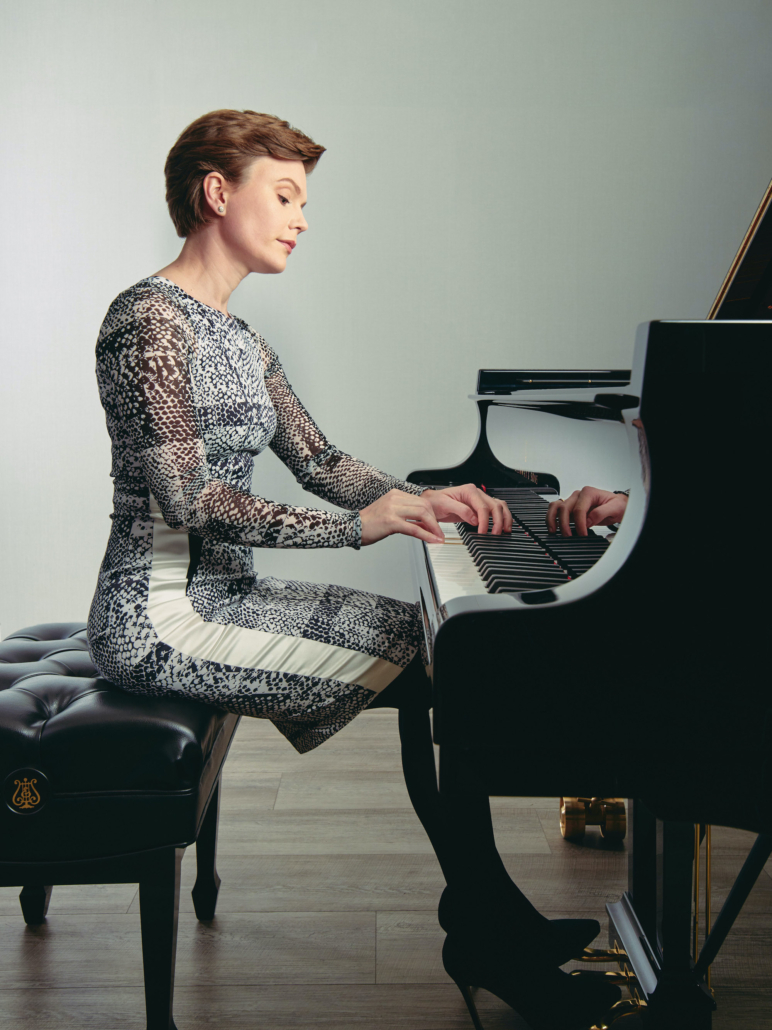OSCAR AND BARNEY TABOR classical musicians
OSCAR AND BARNEY TABOR:
presented by Rochdale Music Society
St Michael´s Church, Bamford, November 2022
review by Graham Marshall
Regular readers will know how grateful we at sidetracks & detours are to those listing agencies who inform us all about fortthcoming events. The agencies include Ribble Valley Jazz and Blues Festival, Jazz In Reading, (Jazz) Music That´s Going Places and English Folk Expo. We are also very grateful to; Steve Bewick for his Hot Biscuits and our occasional contributors like Alan Lawless for his Lawless Jazz, Steve Cooke from all across the arts, Peter Pearson for his gentle corrections of my mistakes on Americana music, and from Graham Marshall, a founding member of the Rochdale Light Orchestra who also delivers us news, previews and reviews from The Rochdale Music Society. Graham is an accomplished musical composer and conductor and his love of classical and light jazz music shines through every review.
Here’s my Review of the recent concert given by Oscar and Barney Tabor for the Rochdale Music Society:

Somerset born brothers Oscar and Barney Tabor (left) both showed early promise of a career in musical performance, Oscar as a violinist and Barney as both a pianist and an accordionist. Having studied separately and pursued their varied performance options they now come together from time to time to make music both as individuals and as a Duo. The programme they played in St. Michael’s Parish Church, Bamford, for the Rochdale Music Society on 19 November offered a well chosen sequence of works which gave them the opportunity to display their personal artistic accomplishment as instrumentalists and their skill in combining with each other in happy agreement to the delight of a receptive and discerning audience.
They began with the Sonata No. 21 in E minor by Mozart for Violin and Piano, a delightful two movement work which they delivered with close attention to its charming melodic detail. Written at a time not long after the composer’s mother’s death, it has an underlying strain of melancholy, which they let emerge without undue emphasis, as Mozart would probably have wished. Oscar then played the first of two solo works he was going to include in the programme, this one being by J.S.Bach: the Sonata in G minor, music of an intimate nature which enabled Oscar to demonstrate his considerable technical skill with the multiple stopping it called for at its climactic points adding depth and colour to its melodic appeal. As a foil to this, the brothers played a novelty piece for Violin and Piano by this Reviewer entitled ‘Galopins’ (French for ‘Scallywags’), which they executed appropriately with tongue in cheek but fingers firmly placed in the right places. Two solo pieces for Barney followed, both by Debussy. These he performed with just the right attention to fingering and pedaling that each in its way requires to produce the effect of the movement of sunlight on water ( ‘Reflets dans l’eau’) and to show off the pianist’s dexterity (’Dr. Gradus and Parnassum’). To end the first half Oscar and Barney combined in a telling performance of the elegiac and passionate Legende by the 19th century composer, Wieniawski.

The second half of the concert began with Sonatina No. 21 in A minor, by Schubert, (right) a more expansive work than the Mozart Sonata. As this performance displayed, it is filled with characteristic Schubertian tunes and harmonies which fill both performers and listeners with excitement and pleasure. Oscar then played the other solo Violin work in the concert, a Passacaglia by Heinrik Biber, who was a prominent composer of the generation before J. S. Bach. This inventive and powerful demonstration of the instrument’s wide range of expression within the compositional constraints of Baroque style proved quite a revelation to the audience, whose applause showed how appreciative they were of both the music and the performer’s artistry. Barney then played two more works for solo piano, Debussy’s Arabesque No. 1 and Chopin’s ‘Raindrop’ Prelude. These are both captivating music guaranteed to please when executed, as they were, with precision and delicacy.

To end the concert the brothers produced a splendid performance of the ever-popular virtuoso violin work by the 19th century composer Sarasate: ‘Ziguenerweisen (Gypsy Airs).(left) Once again the audience showed its appreciation by its prolonged applause, which brought the performers back to delight all those present by playing Massenet’s ‘Meditation’ from the Opera, ‘Thais’, as an encore.

Thank you Graham. I have fond memories of regularly attending comments like these when I lived in Rochdale. I would have especially enjoyed the Gypsy Airs, I think,
We have noted that Rochdale Music Society has some wonderful concerts still to take place at The Heywood Civic Centre during the remainder of the 2022/3 season, and we list details below for our readers.

Saturday 11th March The Playel Ensemble (right)
The group was formed in Manchester in January 2011. We are friends and colleagues who draw on a wealth of experience gained through many years of music-making. Since our formation, we have given over 200 concerts, and have an enormous and varied repertoire of chamber music. The Pleyel Ensemble is delighted to be chosen again as Making Music Recommended Artists for the 2019/’20 season and has appeared at Music Societies and Festivals all over the UK.
The Playel Ensemble take their name from the Classical composer Ignaz Pleyel (1757-1831), a brilliant musician and businessman, who, in addition to writing a large body of accessible chamber music, helped increase the popularity of this wonderful kind of music-making amongst amateurs and professionals as both music publisher and piano manufacturer in the early nineteenth century.
As an ensemble comprising wind, strings and piano they are able to offer a diverse repertoire with many instrumental combinations available. From a Trout to a Bumblebee or an Archduke to a Gypsy, anything is possible! We’re open to bookings!
The Playel Ensemble make British music a priority. Between them they have commissioned or premiered more than a hundred works and recognise both the importance and necessity of continuing this work. Readers can see all the amazing musicians, past and present, to have worked with the ensemble on their web site at https://www.pleyelensemble.com/about-us/
Saturday 22nd April Patrick Hemmele piano
Patrick Hemmele is a new name to me, but you can have every faith in the impeccable taste and tight quality control of The Rochdale Music Society, so you reserve your tickets with confidence.

Saturday 13th May Clare Hammond piano
Acclaimed as a “pianist of extraordinary gifts” (Gramophone) and “immense power” (The Times), Clare Hammond is recognised for the virtuosity and authority of her performances.
In 2016, she won the Royal Philharmonic Society’s ‘Young Artist Award’ in recognition of outstanding achievement. Recent highlights include Grieg Piano Concerto with the City of Birmingham Symphony Orchestra, Moussa and Carwithen with the BBC Symphony Orchestra and BBC Concert Orchestra, Panufnik with the Warsaw Philharmonic Orchestra, and recitals at the Aldeburgh Festival, Palazzetto Bru Zane in Venice (broadcast on RAI 3), Husum Festival in Germany, and in Denmark and Norway with Henning Kraggerud.
This season she looks forward to performing Grace Williams’ Sinfonia Concertante with Jac van Steen and BBC National Orchestra of Wales, Rachmaninoff Paganini Variations with the BBC Symphony Orchestra and Lionel Bringuier, works by Piers Hellawell and Samy Moussa with the Ulster Orchestra and Jamie Phillips, and recitals at the Wigmore Hall, London’s National Gallery, Lammermuir Festival and Festival Baroque de Pontoise, among others. She brings Ghosts and Whispers, a performance piece for piano and film with composer John Woolrich and animators the Quay Brothers, to Fundación Juan March and to the Barbican, and continues her collaboration with actor and writer Tama Matheson.
Contemporary music is at the core of Clare’s work. She has given over 50 world premieres, including those of major works by Arlene Sierra, Robert Saxton and Michael Berkeley, and her discography includes world premiere recordings of over twenty works. In 2019, she gave the world premiere of Kenneth Hesketh’s Uncoiling the River with Martyn Brabbins and the BBC National Orchestra of Wales, and a further performance with the Royal Liverpool Philharmonic and Vasily Petrenko. In 2022, she premiered Graham Fitkin’s new piano quartet with Fitkin, Ruth Wall and Kathryn Stott at the Aldeburgh Festival, and opened the Southbank Centre’s 22/23 season at the Queen Elizabeth Hall with the work.
Clare has recorded six discs for BIS, most recently releasing an album of Etudes by visionary French composer Hélène de Montgeroult. A disc of 20th- and 21st-century variations was released in 2021, and received extensive critical approval for Clare’s “shimmering pianism and lightly-worn virtuosity” (BBC Music Magazine) and “artistry of the highest order” (Musical Opinion), while Crescendo (Belgium) hailed her as “one of the most exploratory pianistic personalities of our time”. She previously recorded a disc of Etudes by Unsuk Chin, Nicolai Kapustin, Sergei Lyapunov and Karol Szymanowski which won her an Opus d’Or from Opus HD Magazine and 5 diapasons from Diapason.
Community engagement forms an increasingly important part of Clare’s work. Since 2017, she has performed to over 9,600 schoolchildren in partnership with Gloucestershire Music and Wye Valley Music in Schools. She frequently gives children’s concerts and masterclasses at festivals in the UK and France, and runs an ongoing series of recitals at prisons.
Clare completed a BA at Cambridge University, where she obtained a double first in music, and undertook postgraduate study with Ronan O’Hora at the Guildhall School of Music & Drama and with Professor Rhian Samuel at City University London. She completed a doctorate on 20th-century left-hand piano concertos in 2012. In 2014 Clare was paired with French pianist Anne Queffélec on the Philip Langridge Mentoring Scheme run by the RPS.
Clare is grateful for the support of the RVW Trust, Hinrichsen Foundation, John S Cohen Foundation, Arts Council England, Scops Arts Trust, Golsoncott Foundation, Gemma Classical Music Trust, Fidelio Charitable Trust, Help Musicians UK, Stradivari Trust, Ambache Charitable Trust, British Korean Society, Chandos Memorial Trust, Vernon Ellis Foundation, Polish Cultural Institute, British Council, and the Britten-Pears Foundation. .

Saturday 24th June Prince Bishop´s Brass
Prince Bishops Brass was formed by a group of brass playing friends who would meet each other whilst playing at various locations around the north of England. During the countless bars rest they encountered while playing for choral societies, operatic companies, symphony orchestras, function bands and big bands, they decided to get together as a brass quintet to eliminate the need to count quite so much. Being based in County Durham, the name Prince Bishops Brass was an obvious choice.
They have amassed an enormous repertoire of music from renaissance through baroque and classical to upbeat jazz and swing arrangements. The group are committed performers and strongly believe that live music should be exciting and entertaining. Their concerts are a tour of musical styles from baroque to big band, with stops in between. If you click on ‘Repertoire’ on their web site you will hear them display their virtuosity while playing ‘The Saints Hallelujah’ their new version of ‘The Blaydon Races,’ written to mark the song’s centenary.
And so will conclude another splendid season of presentations from The Rochdale Music Society.




Leave a Reply
Want to join the discussion?Feel free to contribute!